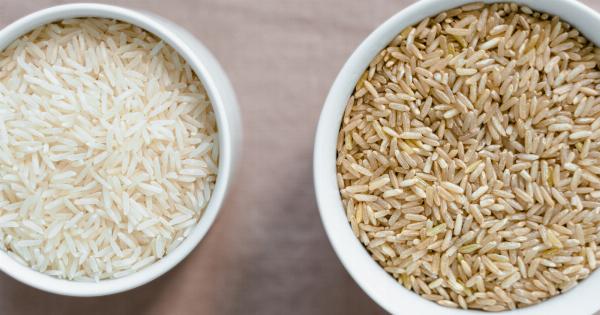Ulcerative colitis, also known as inflammatory bowel disease (IBD), is a chronic condition that affects the colon (large intestine) and rectum.
It is a type of autoimmune disorder, where the body’s immune system mistakenly attacks the healthy cells in the colon, causing inflammation and ulcers.
The symptoms of UC can vary from mild to severe, and often come and go in cycles. It is important to recognize the signs early on, as timely treatment can help manage the flare-ups and prevent long-term complications.
Here are some of the common signs to watch for:.
Abdominal Pain and Cramping
One of the most common symptoms of UC is abdominal pain and cramping. The pain is usually felt in the lower left side of the abdomen, and can be mild or severe. It is often accompanied by bloating, gas, and a feeling of fullness.
The pain can be intermittent or constant, and may worsen during bowel movements.
Diarrhea and Urgency
Another common symptom of UC is diarrhea, which can range from mild to severe. It is usually accompanied by urgency, where you feel the need to go to the bathroom immediately.
The diarrhea may be watery or bloody, and can occur several times a day or more.
Blood in Stool
Blood in the stool is a common symptom of UC, especially during a flare-up. The blood may be bright red or dark, and can be mixed with the stool or seen on the toilet paper.
If you notice blood in your stool, it is important to consult your doctor, as it can also be a sign of other serious conditions, such as colon cancer.
Anemia and Fatigue
Chronic inflammation and blood loss can lead to anemia, a condition where the body doesn’t have enough red blood cells to carry oxygen to the tissues. This can cause fatigue, weakness, shortness of breath, and pale skin.
If you experience these symptoms, it’s important to get your blood levels checked by a doctor.
Weight Loss and Poor Appetite
UC can also cause weight loss and poor appetite, as the inflammation in the intestine can interfere with the absorption of nutrients.
If you experience a significant weight loss without any apparent reason, and have a poor appetite, it’s important to get checked by a doctor.
Inflammation of Joints and Eyes
UC can also cause inflammation of joints and eyes, known as arthritis and uveitis respectively. Arthritis can cause pain, swelling, and stiffness in the joints, and uveitis can cause redness, pain, and blurred vision.
If you experience these symptoms, it’s important to consult a doctor, as these conditions can lead to long-term complications if left untreated.
Skin Rashes and Sores
UC can also cause skin rashes, sores, and blisters, especially around the mouth and anus. These can be itchy, painful, and can lead to infections if left untreated. If you notice any skin changes, it’s important to consult a doctor.
Fever and Chills
UC can cause fever and chills, especially during a flare-up. This is a sign that the body is fighting the inflammation and infection. If you experience a high fever, it’s important to consult a doctor, as it can be a sign of serious infection.
Dehydration and Electrolyte Imbalance
UC can cause dehydration and electrolyte imbalance, as the body loses fluids and nutrients through diarrhea. This can cause weakness, dizziness, and even fainting. It is important to stay hydrated by drinking plenty of fluids, and eating a balanced diet.
Rectal Bleeding
UC can cause rectal bleeding, which can be mild or severe. The bleeding may be seen as bright red blood on toilet paper or in the toilet bowl.
It is important to consult your doctor if you experience rectal bleeding, as it can also be a sign of other serious conditions, such as hemorrhoids or colon cancer.
Conclusion
Recognizing the signs of UC early on can help manage the flare-ups and prevent long-term complications. If you experience any of these symptoms, it’s important to consult your doctor for proper diagnosis and treatment.
With timely intervention, most people with UC can lead a relatively normal life.


























